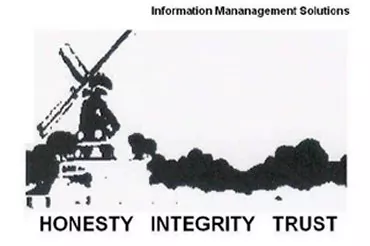Antigua & Barbuda has expropriated the private property of United States citizens.
The Government has never offered to purchase the property, the Half Moon Bay Resort, which includes a beach front hotel surrounded by 108 acres of amenities, golf course, estate and development lands. Between nature's gift and its owners' care, the property has been acknowledged by the Travel Channel in 1999 as being set on the best beach in the world.
Proclaiming eminent domain, the Government of Antigua alleged this action was for a public purpose.
A new definition of public purpose was provided when, in his 2003 Budget presentation to Parliament, the then Prime Minister Lester Bird proposed to balance the nation's deficit by the sale proceeds of the Half Moon Bay property.
Bird added that the Government was actively pursuing potential buyers, naming R. Allen Stanford of Stanford Development and Stanford Investments; Saul Kerzner of Sun City, South Africa and Atlantis, Paradise Island; and William B. Johnson, founder of the Ritz Carlton Hotels. Bird later added another buyer to the list, identifying him as British entrepreneur Peter de Savary.
When the new administration came to office almost three years ago, it promised to relinquish its hold over the property and to reverse the improper Parliamentary declarations that allowed the Government to invoke the power of the Land Acquisition Act. Although discussions were held between the owners and the Government, no tangible progress was being made.
Meanwhile, while waiting for a hearing of the matter by Privy Council, Antigua & Barbuda's Attorney General, Justin Simon QC, authorised the Land Registrar to complete the transfer of the property to the Crown. An entry dated 8 March 2005 now clearly shows the Government of Antigua & Barbuda, and not the Crown, as the new owner of the property.
This was followed in July 2005 by an ill-tempered debate in Parliament, which ratified a Cabinet decision to "revest" the property, subject to conditions. Such demands would be unacceptable to any legitimate investor, let alone legitimate owner, whose property had been improperly seized.
Further conditions imposed by the Government included developing the property within a timeline set by the Government, failing which the "revestment" would become null and void; a blanket indemnity from the rightful owners of the property for any and all Ministers' actions, past, current, known and yet to be discovered, which also includes third-party indemnification; and the owners' abandonment of all legal action and claims against the Government of Antigua and Barbuda. All of which would cause the owners to absorb not only the loss of income plus the cost of maintenance, but also the huge cost of multiple legal actions undertaken to protect their property and interests.
In November of 2006, Attorney General, Justin Simon QC, a strong proponent of a Caribbean Court of Justice, further detailed his terms for settlement. These now include the Government retaining a lien on the property, specifically restraining its sale and several performance milestones, critical to the retention of property ownership.
When informed that such terms would be unacceptable to any legitimate lender, especially to the World Bank agencies involved, the Attorney General replaced this newest condition by stating in writing that the Government of Antigua would then require a confidential side letter from the owners of the property, giving the Government the right to take the property in the event of any failure to perform according to the time-line set out in the settlement terms.
It is astonishing, that a nation's Attorney General and a Queens Counsel should advocate deception and loan fraud. It is also disturbing.
Meanwhile, despite having one of the largest per capita debts of any world nation, despite the breach of several international trade and bi-lateral investment treaties, and despite his administration's expropriation of foreign investors' property, Antigua & Barbuda's Finance Minister, Dr. Errol Cort, appeared at a conference in London in November 2006, hosted by PM Tony Blair. There he appealed for Foreign Direct Investment.
The U.S. State Department has reminded the Government of Antigua & Barbuda that it is in both countries’ interests to get the matter resolved and that there are political and economic consequences to continuing the process of expropriation of American-owned property. A proposal has been submitted for a balanced and mutually satisfactory settlement through the American Ambassador, to no avail. While using disingenuous tactics to delay dealing with the matter on a diplomatic level, the Government of Antigua & Barbuda is actually running out of time to do so. The Appeal to Her Majesty's Privy Council is scheduled to be heard in April 2007.
In the considerable public interest, notification of the present state of affairs will now be formally drawn to the attention of relevant national and supranational bodies.
Nations and entities currently conducting or considering trade and investment with Antigua & Barbuda would be advised to review their own country's commercial and aid arrangements to ensure these have not been breached or endangered.
The content of this article is intended to provide a general guide to the subject matter. Specialist advice should be sought about your specific circumstances.


